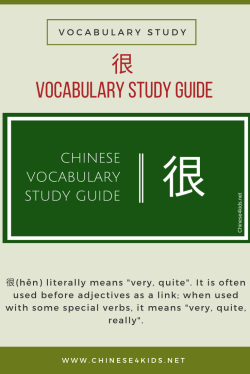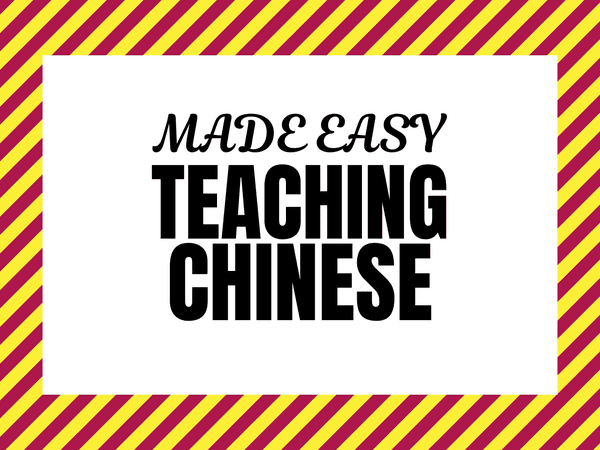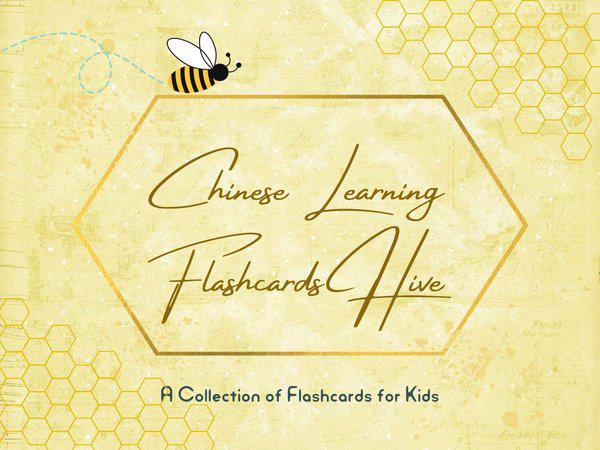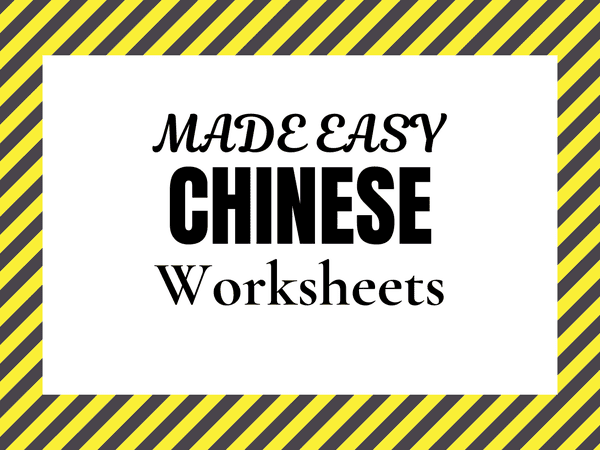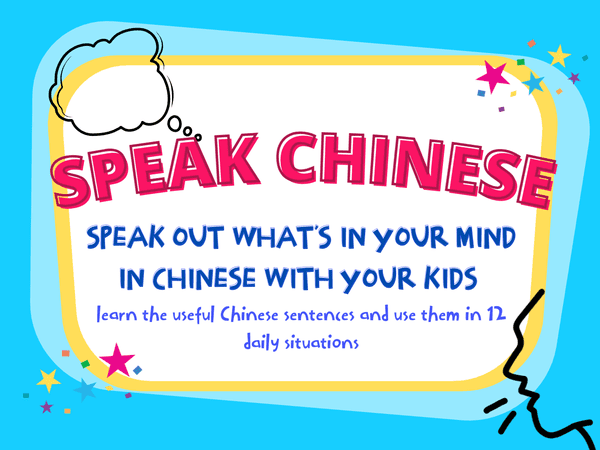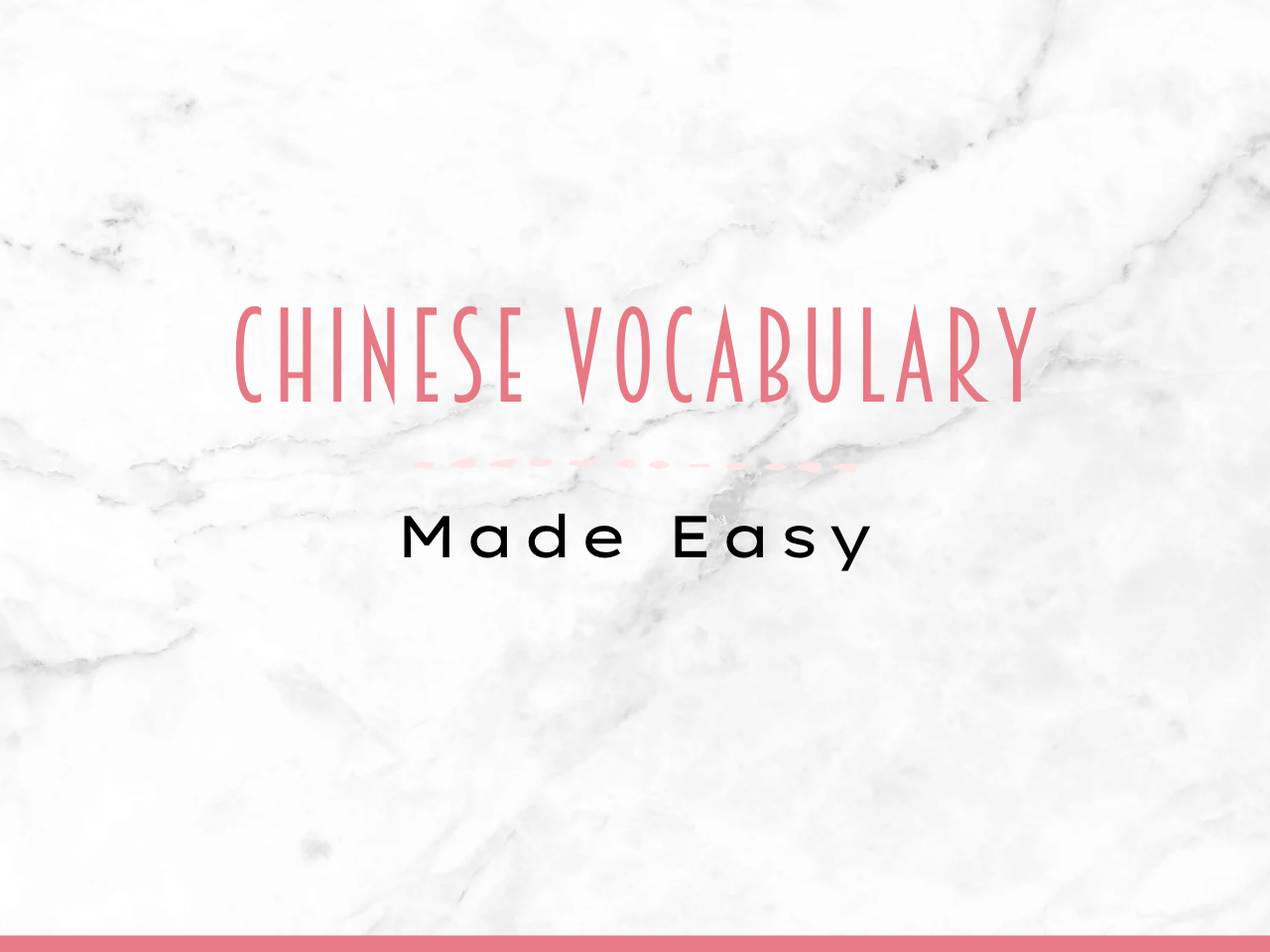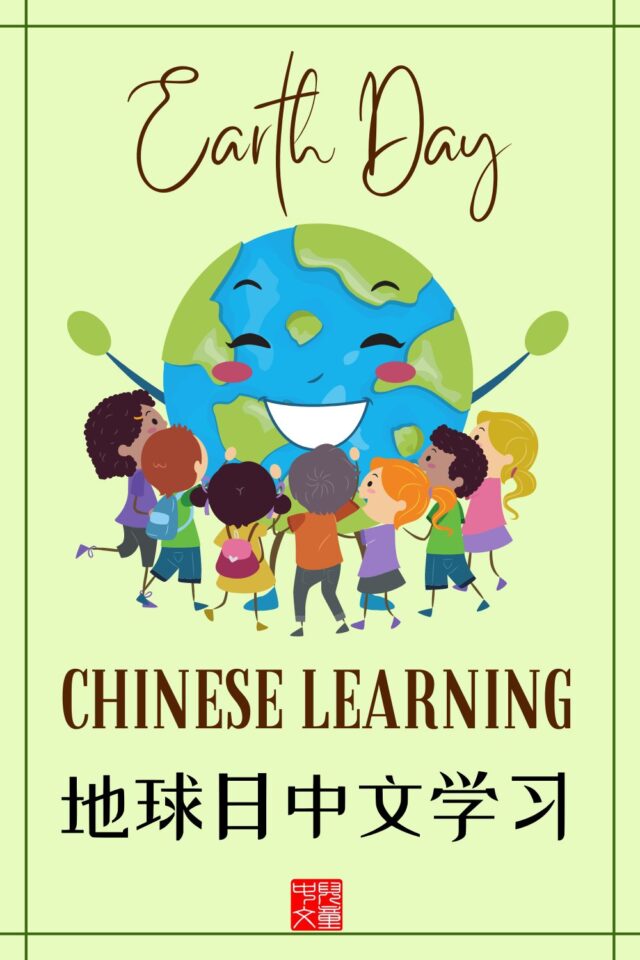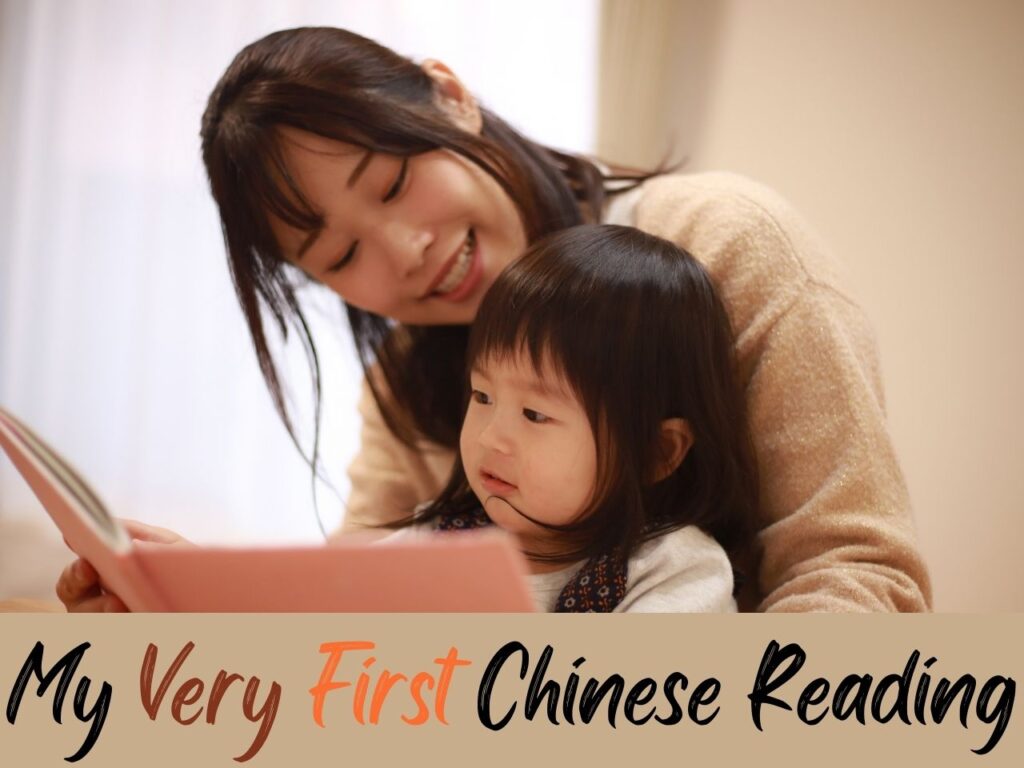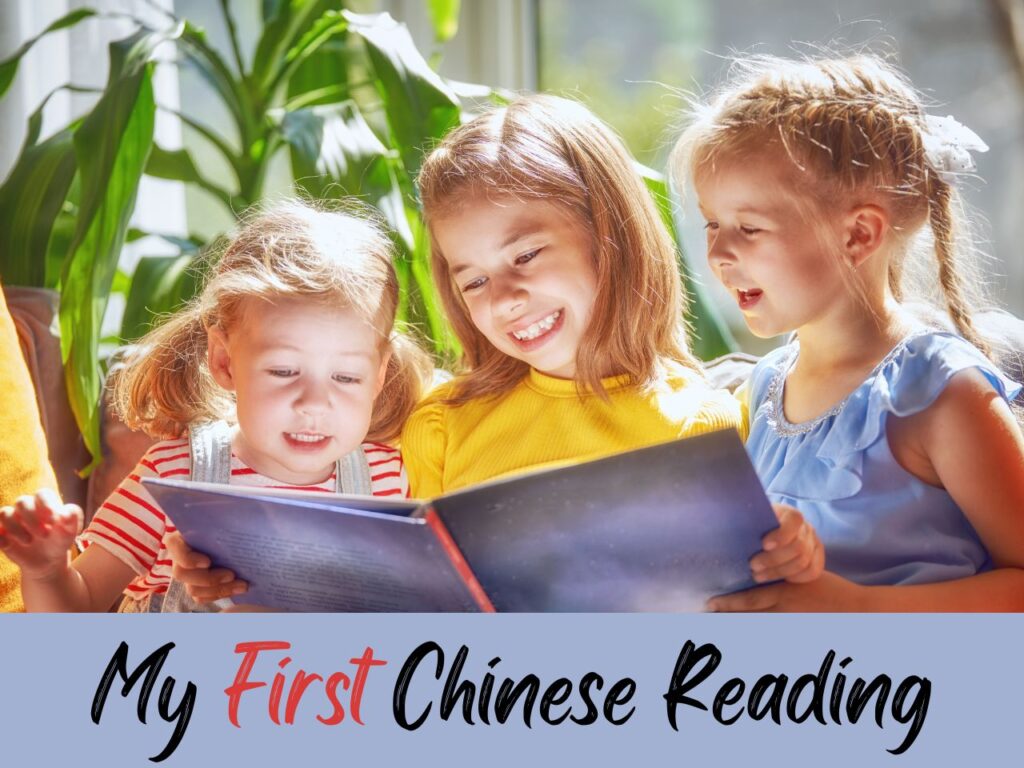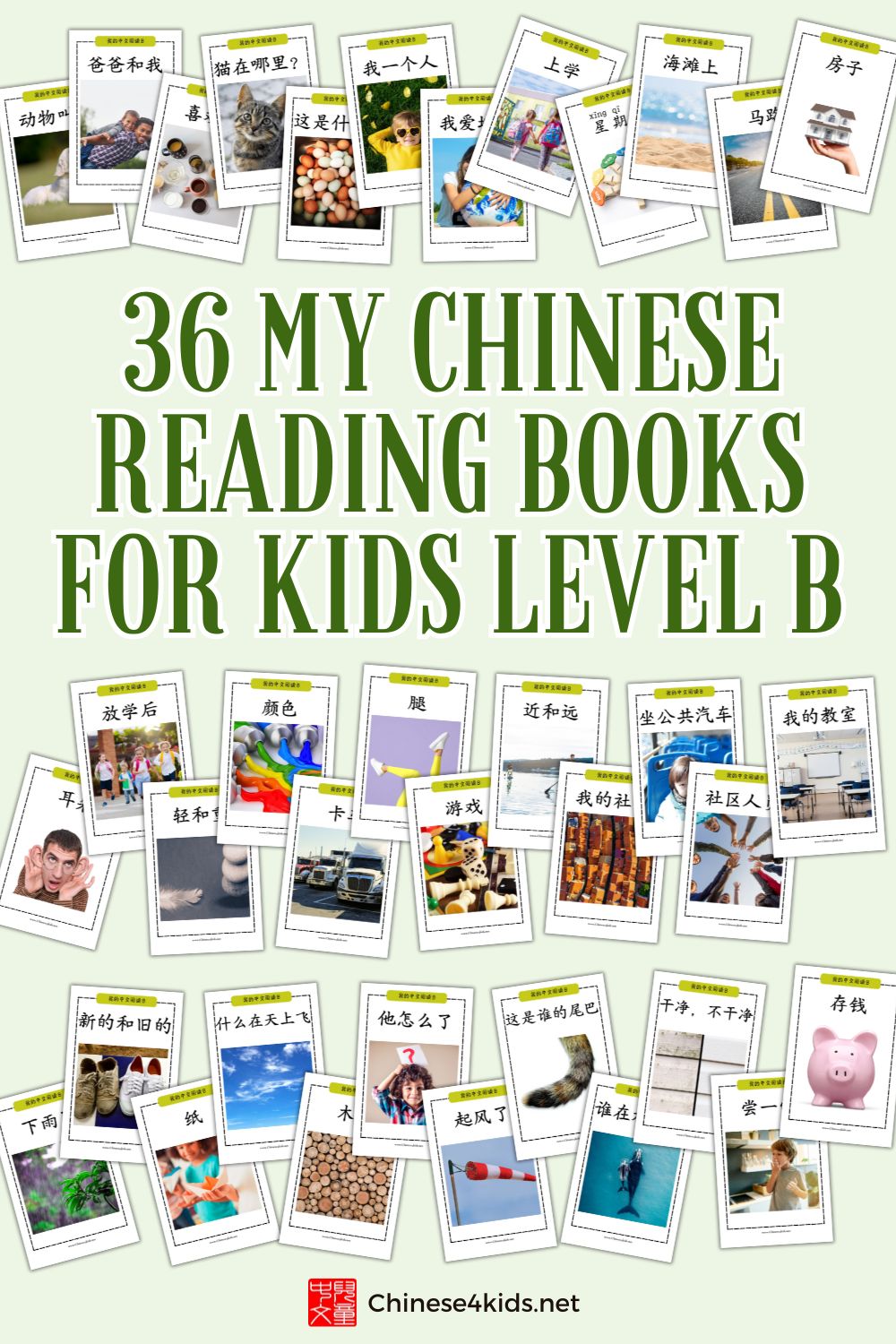
Chinese Vocabulary Study Guide-Hen
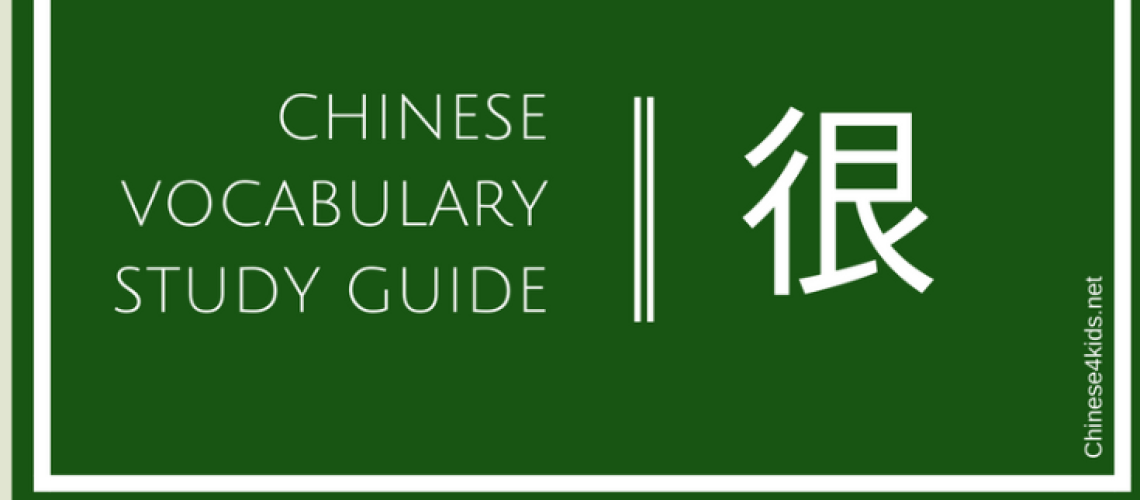
If we translate 很 (hěn)into English, 很 literally means “very, quite”. However, it is often used before adjectives and its meaning is simply “to be”. Here is the Chinese vocabulary study guide 很.
很 (hěn)vs 是 (Shì )
Both 很 and 是 can be translated into “to be”. The difference is that 是 is used in front of nouns and 很 in front of adjectives.
The sentence structures are
Noun + 是 + noun
Noun + 很 + Adj.
For example,
我是学生。
Wǒ shì xuéshēng.
I am a student.他是老师。
Tā shì lǎoshī.
He is a teacher.他很高。
Tā hěn gāo.
He is tall.爸爸很累。
Bàba hěn lèi.
Dad is tired.
Note: A common mistake Chinese students make is using 是 instead of 很 in front of adjectives. Such as
他是高。 wrong
Tā shì gāo.
He is tall.他很高。 Right
Tā hěn gāo.
He is tall.
Simple “Noun +Adjective” Sentences Using 很
The sentence structure is
Noun + 很 + Adj.
For example,
妹妹今天生日,她很高兴。
Mèimei jīntiān shēngrì, tā hěn gāoxìng.
It is little sister’s birthday today. She is happy.你很漂亮。
Nǐ hěn piàoliang.
You are pretty.这本书很重。
Zhè běn shū hěn zhòng.
This book is heavy.他很忙。
Tā hěn máng.
He is busy.我们很饱。
Wǒmen hěn bǎo.
We are full.
Note: When used in this structure, 很 does not mean “very”; it is simply a link between the noun and the adjective. To emphasize “really” or “very”, we could use 非常 (fēicháng).
他很高兴。
Tā hěn gāoxìng.
He is happy.他非常高兴。
Tā fēicháng gāoxìng.
He is VERY happy.
Special Verbs with 很
很can be used to intensify the verbs that express emotional states or feelings, such as
- 想 xiǎng want; wish, miss, feel like doing, would like to
- 喜欢 xǐhuān like, love
- 害怕 hàipà be afraid , be scared
- 讨厌 tǎoyàn hate
- 担心 dānxīn worry, be anxious
- 希望 xīwàng hope, wish, expect
- 愿意 yuànyì be willing to
- 小心 xiǎoxīn be careful
- 高兴 gāoxìng be happy to, be willing to
- …
When used with these verbs, 很 means “really” or “very”.
For example,
我很想吃冰激凌。
Wǒ hěn xiǎng chī bīngjīlíng.
I really want to eat ice cream.我很喜欢看那部电影。
Wǒ hěn xǐhuān kàn nà bù diànyǐng.
I really like watching that movie.他很害怕一个人回家。
Tā hěn hàipà yīgè rén huí jiā.
He is really afraid of going home alone.妹妹很讨厌老鼠。
Mèimei hěn tǎoyàn lǎoshǔ.
My little sister really hates mice.妈妈很担心在路上的孩子。
Māmā hěn dānxīn zài lùshàng de háizi.
Mom is very worried about her children on the road.我很希望去北京参观。
Wǒ hěn xīwàng qù běijīng cānguān.
I really hope to visit Beijing.他很愿意和小平交朋友。
Tā hěn yuànyì hé xiǎopíng jiāo péngyǒu.
He is very willing to make friends with Xiao Ping.你一个人在家一定要很小心。
Nǐ yīgè rén zàijiā yì dìng yào hěn xiǎoxīn.
You must be very careful when you are home alone.很高兴认识你。
Hěn gāoxìng rènshì nǐ.
Very happy to get to know you.
If you like this post, PIN IT!
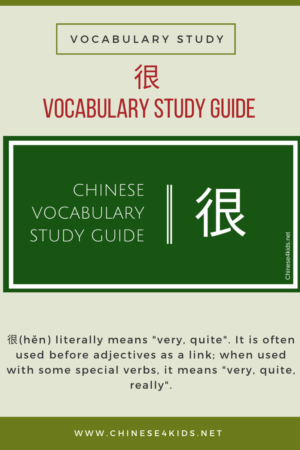
You may find the guide in
CHINESE VOCABULARY STUDY GUIDE BOOK I
You May Also Be Interested:
- Chinese4kids Membership – a portal for busy Chinese teachers and parents
- Chinese learning flashcards Hive – a flashcards library that with regular additions of new quality Chinese learning flashcards
- Chinese learning worksheets collection – Also a part of Chinese4kids membership, this collection is for teachers and parents who want to have access to engaging worksheets and activity sheets created for kids learning Mandarin Chinese as an additional language
- Speak Chinese with Kids Course
You May Also Be Interested:
- Chinese4kids Membership – a portal for busy Chinese teachers and parents
- Chinese learning flashcards Hive – a flashcards library that with regular additions of new quality Chinese learning flashcards
- Chinese learning worksheets collection – Also a part of Chinese4kids membership, this collection is for teachers and parents who want to have access to engaging worksheets and activity sheets created for kids learning Mandarin Chinese as an additional language
- Speak Chinese with Kids Course
- Chinese Vocabulary Made Easy Course
Recent Posts
Join Our Membership
Enroll to A Course
Buy An eBOOK
Our Posts
